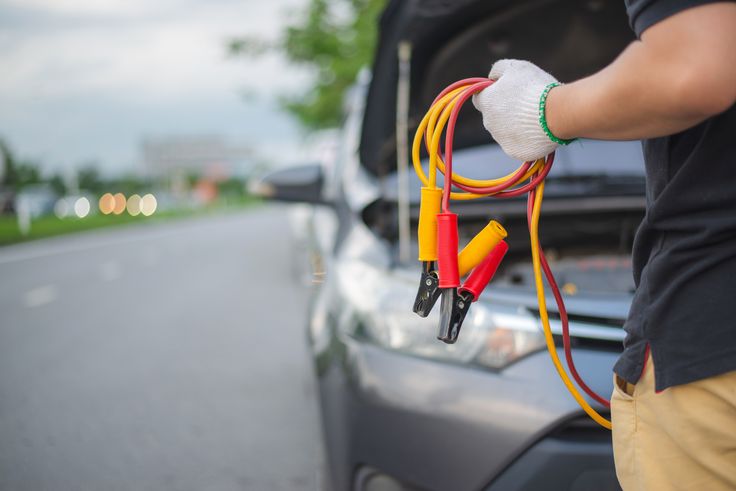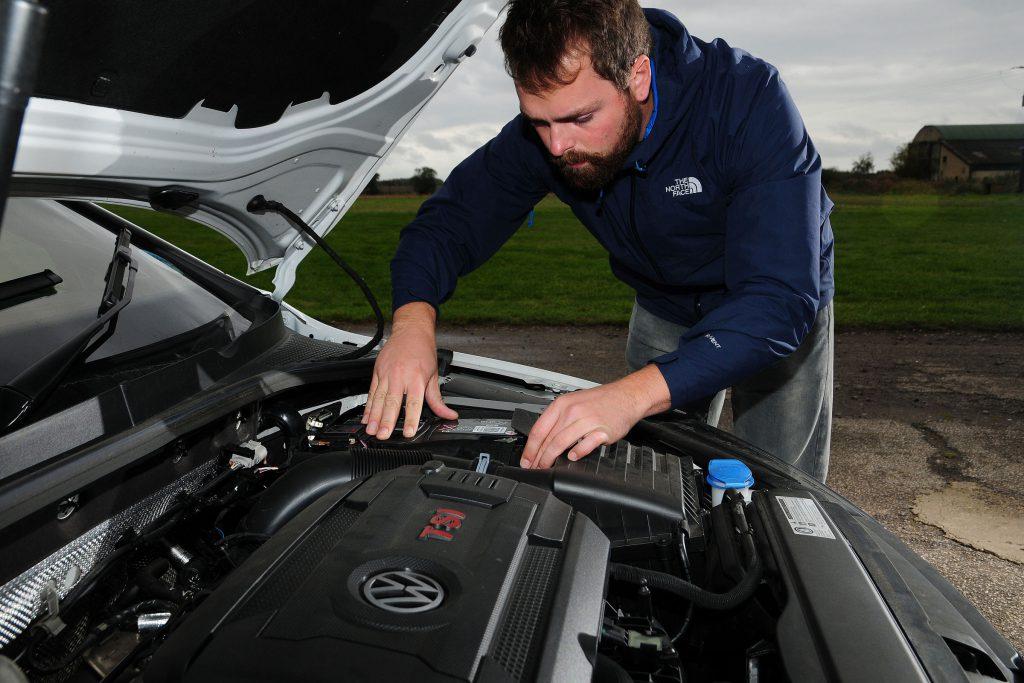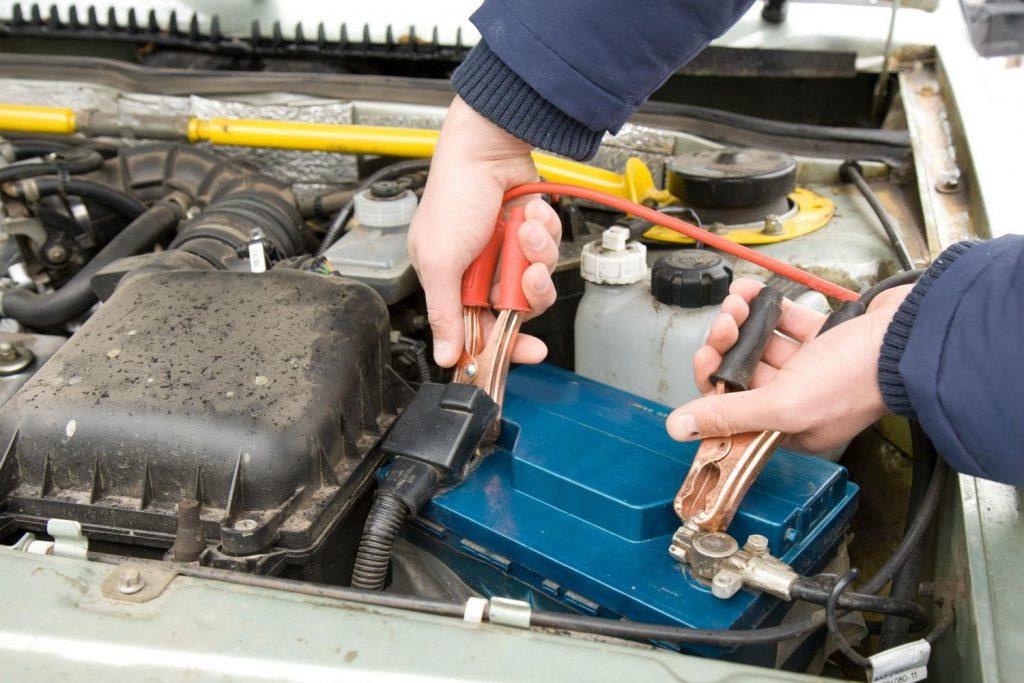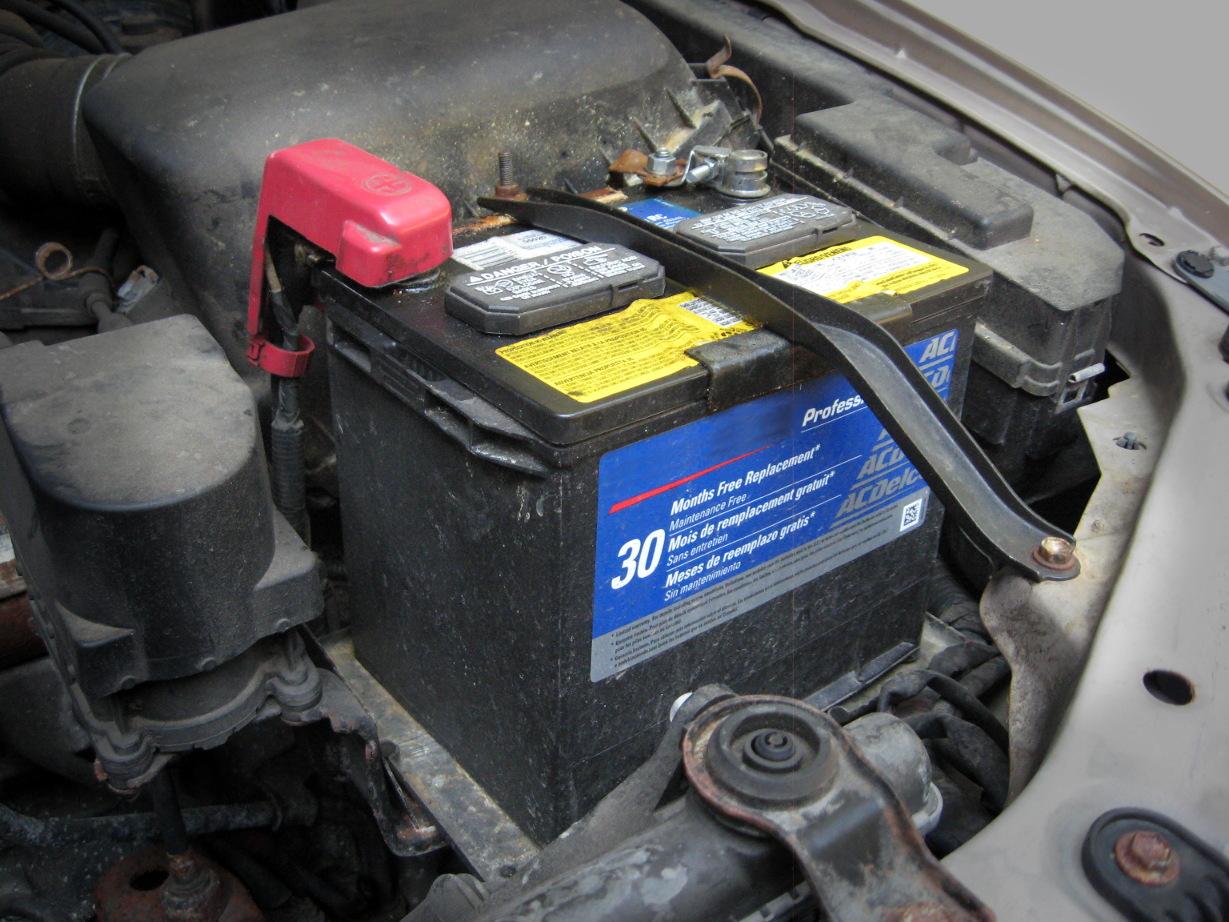“How long does it take to charge a car battery?” is a question that many car owners often ask. Basically, the time to fully recharge your 12-volt car battery will be up to the amperage of the charger you are using. A charger with high amps will take less time to charge your car battery than one with low amps. On the other hand, if you want to maintain your car battery at a fully charged level, using a low amp charger is better than a high amp one.
To know exactly how much time it will take to charge a car battery, let’s take a closer look at the information below!
Contents
How Long Does It Take To Charge A Car Battery?
1. How long to charge a car battery at 40 amps?
Actually, the 40 amp charger is a great option if you want to charge your car battery quickly and effectively. Even when your battery is totally depleted, your car will be able to start within a few minutes after connecting to the 40 amp charger. It is also a very useful item you should have when traveling as it can charge your depleted battery very quickly and helps around to give you a jump start using jumper cables.
Note: You should know that keeping this charger connected for long periods of time may destroy your battery. If the charger you are using is a smart deep cycle battery charger, it will automatically decrease the amperage immediately when your battery is fully charged from 40 amps down to a trickle for switch-off totally or for maintenance. Therefore, these smart chargers are the best choice to buy.

2. How long to charge a car battery at 4 amps?
Normally, a deep cycle battery often holds 48 amps so if you charge it at 1 amp, it will take you 48 hours. Similarly, if you charge your car battery at 4 amps, the total time to make the battery fully charged is about 12 hours. Therefore, if you need a quick charger, a 4 amp charger is not a good option for you. However, this charger is ideal for smaller batteries.
Using a smart 4 amp charger is ideal if you want to maintain your car battery or keep it on low amperage for extended periods of time. The charger will work to charge less used batteries like a trickle charger and then automatically switch off when the full charge is reached and switch on again when the battery charge drops below a fixed level.
3. How long to charge a car battery at 2 amps?
Using a 2 amp charger will take you quite a long time to charge your car battery at an acceptable level. The average time to charge your 48 amp battery is up to 24 hours. Therefore, this type of charge is often used as a trickle charge or for maintaining your battery at probable charge and not trying to get a fast charge to boost your battery and get it started.
In fact, 2 amps is an excellent amperage to use when you are planning to have your battery connected to the charger over a period of time on batteries that are seldom used like that antique vehicle that is only driven once for a while. The smart 2 amp charger will also help in maintaining a certain charge in the battery so that the car is always ready to drive whenever you want to take it out for a spin.
4. How long does it take to charge a car battery with a trickle charge?
A trickle charger is a great option if you are going to leave your car in the garage for extended periods of time. Trick chargers usually run at around 2 amperes and it can take at least 24 hours to get your 48 amp battery up to an acceptable level, depending on the condition of your battery.
The main functions of trickle chargers are maintaining your car battery and keeping it never running out of charge. A trick charger requires a long time to fully charge your battery and will automatically switch off when full charge is reached.
Mechanics in workshops often use trickle chargers to maintain the batteries while they repair or maintain other parts of the car, particularly if the battery is going to stand detached for an extended period of time, hence the battery will have enough charge to be ready when putting back into the car to use.
How Long Does It Take To Charge A Dead Car Battery?
Many people also ask “How long does it take to charge a dead car battery?” In fact, a dead car battery takes from 4 to 24 hours to reach a full charge. The time it takes is up to the size of your battery and how many amperes your battery is charging. Normally, 4 amps is the common rate for car battery chargers. A dead 52Ah battery will take you about 10 hours to fully charge. But after connecting the charge for 1 hour, you can be able to start your car.
Here is the process for you to follow if you want to recover your dead battery:
Firstly, take a look at the car battery charger you are going to use and see how many amperes it gives out. High amp chargers charge your battery faster than low amp ones. However, as we mentioned above low amp charger is better for maintaining your battery over extended periods of time.
Secondly, take a look at the type and the size of your battery. A mid-size car often uses a battery of the size from 40 to 80Ah. Also, keep in mind that a GEL/AGM battery can be charged faster than a common wet battery.
Note: A 40 amp charger can charge your dead battery really quick but it may destroy your battery as well if you forget to disconnect the charger. In today’s market, there are smart 40 amp chargers so if you need a quick charge, go for these ones.
How Long Does It Take To Charge A Car Battery While Driving? Looking Into The Facts
Charging a car battery is a task that should never be overlooked. That is why it becomes essential to charge the car battery when the need be. One can simply recharge the car battery by driving. How is that so? Know here.
1. Car usage cycle
The first factor that may lead to the draining of a car battery is the car’s usage cycle. If you leave the car unused for over a long time period, the battery is prone to dying. It is usually known that when you accidentally keep your AC or car lights “ON,” for over a night, the car battery drains.
The best way to charge a battery in such a case is “idling.” If the alternator is not at fault, the process of idling will recharge the battery partly. Alternatively, you could also go for a short-start trip to recharge the battery. One should keep in mind that these methods would not truly charge the battery. You would have to use a multi-stage battery charger to make sure you apply recharge the battery to the optimal levels. Let’s look further and find out how long does it take to charge a car battery while driving.

Read more :
- Stipulated Time Taken To Recharge a Dead Car Battery
- Consequences Of Car Battery Dying While Driving
2. The initial charge time duration
The time that a car battery takes to recharge, depends on when it was recharged last. The time it takes for charging a car battery by driving varies from vehicle to vehicle. Generally speaking, you would have to maintain an RPM (Revolutions per minute) of over 1000, for a certain time. The lesser the charge in the battery more would be time takes to recharge it. You could also refer to maintenance tips for the top car battery packs of 2018.
Stats point out the fact that when you drive on high-speed lanes, it would take up to half an hour to charge the battery. On the other side, when driving in busy traffic lanes of the city, the recharge time could extend up to one hour, or even more. Remember to not use lights, radio, stereo system, heater, or any other electrical device while running a car with the intention of battery recharge.
3. What if nothing works out?
In case, the battery turns dead and doesn’t recharge, either by idling or by running it down the road; you would have to jump-start it. It is always better to consult a technician in this case. This process involves, creating a temporary connection to an external battery source so as to transfer its power to the dead battery.

Once the vehicle starts using the jump-starting mechanism, it would turn over to its natural ways for recharging. There could be times when the alternator is at fault. In such cases, you would have to visit a technician to make sure the alternator and the battery work effectively.
Want to know how to recharge your car battery? Check out the video below:
Other Useful Information
1. How fast should I charge my car battery?
The speed of charging will depend on what you need. If you need quick charging, you can use high amp chargers but bear in mind that some of these chargers might damage your battery. Low amp chargers require a long time to give your battery full charging, however, they are the best option for maintaining your battery over a period of time.
A regular car battery charger gives out from 4 to 15 amperes. A 2-4 ampere charger is often used for maintenance purposes and it will take about 24 hours to charge your dead battery to a full charge.
If you really want to charge your battery quickly, we recommend you should use smart high amp chargers as they allow you to charge the battery quickly without damaging it.
2. Jump starting
A Jump starter is highly recommended for you in case you want to start your car quickly. Modern jump starters will start your car right away and are very user-friendly and safe to use.
3. What car battery charger should I use?
To find out which car battery charge fitted you need, you should know what amp rates you want for your charger. In the modern day, there are many smart chargers that are easy to use and automatically switch off or turn into maintenance mode once your battery is fully charged.
Cheaper chargers often supply more amps than what is printed on their boxes. So our recommendation is to buy high-quality chargers from authorized manufacturers. The high-quality chargers will save your car battery as well as minimize the risk of damage to your car.
Conclusion
Now that you know how long does it take to charge a car battery, you would not face problems the next time. Always remember not to leave your car’s electrical devices ON when not needed. Also, keep your car on the run every now and then to do away with battery downtimes.



